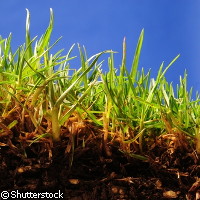Measuring the microworld that controls our world
From the soil under our feet to the human gut, microbial communities control all fundamental biological processes on our planet, and can provide important information on threats and changes to these environments. EU-funded scientists have now developed a more accurate way of measuring the carbon flux in these communities of microorganisms, and of capturing their metabolic functions and processes in greater detail. Results from the study are published in the journal Molecular and Cellular Proteomics. Changes in microbial communities (clusters of tiny organisms naked to the human eye) are often the first warning signs of changes that are likely to affect an environment in its entirety. Sitting at the bottom rung of the food chain, these communities provide microbiologists with useful data to help them understand, prevent and even treat these changes. But with anywhere between 5 million and 100 million species of microorganisms on Earth, it is extremely difficult for researchers to know which key organisms within the microbial communities to concentrate on. A team of scientists working on the ISOTONIC ('Isotope tools to investigate structure and function of microbial communities') project has now made it possible to identify key species more effectively, to study natural remineralisation processes, and to examine interactions between microorganisms. The new technique, known as Protein-SIP (stable isotope probing), has enormous scope for potential applications and could even trigger the development of new medical treatments. Under the Protein-SIP method, microbial communities are fed a carbon source containing two masses of isotope (atoms with the same chemical element that have different numbers of neutrons). Before this new technique was developed, scientists could identify species with metabolic activity using either DNA (deoxyribonucleic acid) or RNA (ribonucleic acid) analyses. Thanks to Protein-SIP, scientists can now study the carbon flux (the difference between carbon removal and addition). The technique makes it possible to identify food chains inherent in a microbial community, and even examine the interactions between groups of microorganisms living within the same community. Professor Hauke Harms of the Helmholtz Centre for Environmental Research (UFZ) in Germany noted that the new algorithm will make future research work much easier. 'The method offers great potential for studying communities, which are at the heart of microbial ecology,' he said. The technique, which is already being applied in energy and environment projects, can be used in a number of ways, including in the treatments of biofilms (such as those used in sewage), in biogas generation processes, in the analysis of the human intestine, and in devising entirely new treatments. When used with other techniques, Protein-SIP is also an effective way of studying the food web involved, for instance, in the breakdown of benzene. 'Protein-SIP is already being used in projects with national and international partners to identify the metabolic activities of methane bacteria from oil deposits and the methane cycle in marine sediments,' said the UFZ's Dr Hans Richnow. Future research for the team will continue under two streams: identifying the key organisms in the breakdown of environmental pollutants in the absence of oxygen, and studying the relationship between intestinal bacteria and their host organisms. Headed by the UFZ, ISOTONIC received EUR 301,653 in funding support from the Marie Curie Actions under the EU's Sixth Framework Programme (FP6).
Countries
Germany



